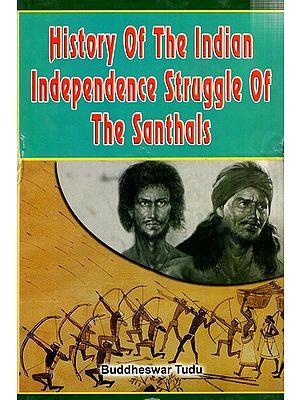History Of The Indian Independence Struggle Of The Santhals By Buddheswar Tudu
History Of The Indian Independence Struggle Of The Santhals By Buddheswar Tudu
Hardcover
Couldn't load pickup availability
Book Description
About the Author
Born on September 22, 1955, in a poor Santhal family in Sapuagora, Purulia district, the author faced significant challenges in his education due to financial constraints. After completing his high school education, he moved to Calcutta for work, eventually earning his graduation. Despite his longing to return to his native village, he remained in Calcutta, deeply concerned about his community's welfare. He has authored eight books—seven in Bengali and one in English—focused on improving conditions for the Santhal community, to which he is dedicated.
Preface
The author reflects on the Santhal agitation of 1855-56, which he believes is overlooked in historical narratives, particularly in contrast to the Sepoy Mutiny of 1857. He argues that the Santhal agitation represents a critical early freedom movement against British rule, challenging the portrayal of higher-caste narratives that often overshadow this significant event. The author highlights the need to recognize the Santhal struggle as foundational to India's fight for independence.
Introduction
The introduction discusses the complexities of tribal identity in India, particularly in relation to the Santhals, who have preserved their culture amidst pressures to assimilate. The author references the historical interactions between Jawaharlal Nehru and anthropologist Verier Elluwn, emphasizing the missed opportunity for a national policy to support tribal communities. The Santhals are depicted as unique in their resilience and cultural integrity, contrasting with the assimilation experienced by other tribes. The author asserts that the folklore of the Santhals provides valuable insights into their historical and cultural identity, countering perceptions of them as uncivilized. This narrative positions the Santhals as a significant, yet often ignored, part of India's rich cultural tapestry.
Share


